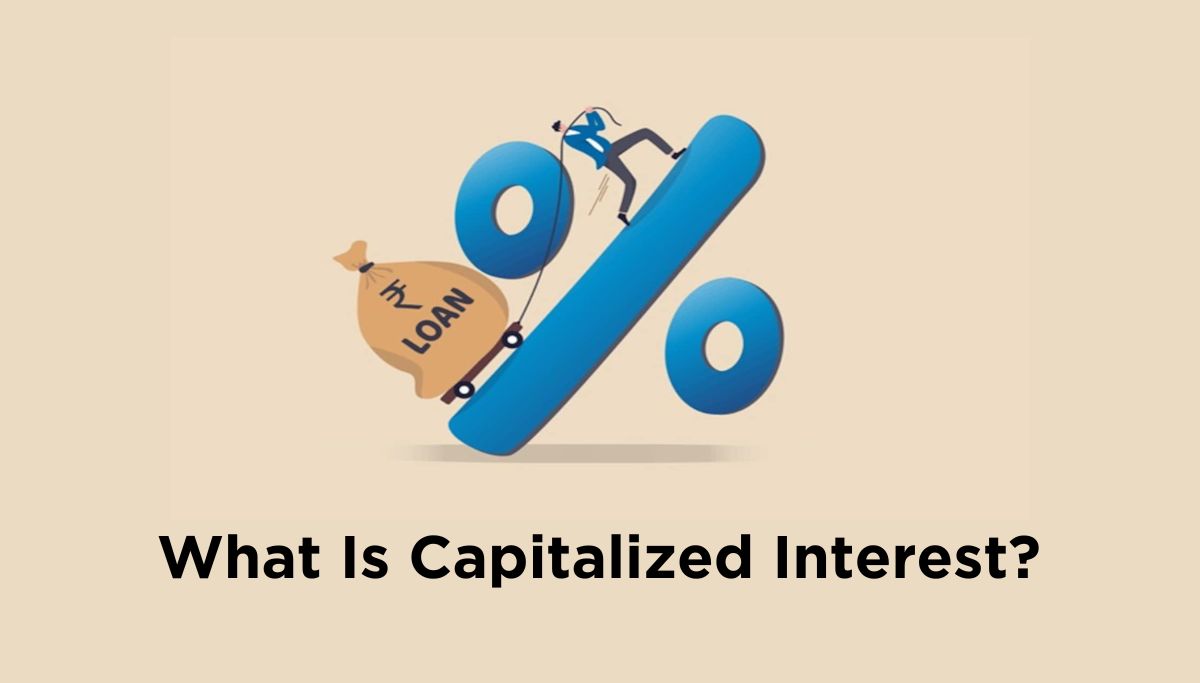Table of Contents
Interest capitalization is when unpaid interest charges get added to your principal loan balance. This often happens if you’re still in school or you’ve qualified for a deferment or forbearance on your student loans. In these cases, you don’t need to make payments, but interest may still be accruing on your loan balances. Once you begin making payments, that interest will increase how much you owe, as well as the amount you’re charged in interest. This blog will answer all your questions to “What is capitalized interest?”

What Is Loan Capitalization?
Capitalization is the addition of unpaid interest to the principal balance of your loan. The principal balance of a loan increases when payments are postponed during periods of deferment or forbearance and unpaid interest is capitalized.
What Does Capitalized Interest Mean?
Capitalized interest is unpaid interest that gets added to your loan balance. When you make monthly payments on a student loan, a portion of your payment goes toward the interest that accrued since your last payment, and the remainder goes toward paying down the principal balance of the loan.
But during times of deferment and forbearance, interest may still be accruing on your accounts, unless you have subsidized federal student loans, in which case the government pays your accrued interest while you’re in school and during other types of deferment.
Instead of charging you this unpaid interest once you start making payments, lenders typically add it to your principal balance. This not only increases how much you owe but also increases how much interest you pay, because your interest rate is now applied to a higher balance.
Now’s the right time to secure a safe education loan! Fill the form in this blog TODAY!
What Does It Mean To Capitalize Interest On Student Loans?
Let’s say that you have $35,000 in student loan debt with an interest rate of 5.5 percent and a $379 monthly payment. If you were to request deferment for 12 months, you’d accrue $1,925 in interest during that time.
Once your deferment ends, your student loan servicer will add that amount to your total balance, increasing it to $36,925. With the new balance, your monthly payment would increase to $400 to ensure that you can still pay off the debt on your original repayment schedule. The difference between a $379 monthly payment and a $400 monthly payment over 10 years is $2,520, which is how much that capitalized interest will cost you over the life of your loan. Interest typically accrues on a daily basis, so the longer your deferment goes, the more interest will accrue over time.
How To Avoid Student Loan Interest Capitalization
There are two ways to avoid interest capitalization on your student loans. The first is to apply for subsidized federal student loans. These loans are designed for undergraduate students with financial needs, and if you qualify, any interest that accrues while you’re in school or a deferment period will be paid for you, though forbearances don’t get the same treatment.
The second option is to make interest-only payments while you’re in college or deferment. This may not be possible if the reason for your deferment is a financial hardship or if you’re not earning an income during school, but it could save you thousands of dollars in the long run.
How To Lower Your Student Loan Interest Costs
Student loan interest can make it challenging to keep up with your monthly payments, especially if it gets capitalized after accruing for several months or even years. If you want to reduce the impact of interest on your student loan repayment plan, here are some steps you can take:
Avoid Capitalized Interest: Making interest-only payments while you’re in school or during periods of deferment or forbearance can save you hundreds or thousands of dollars on your loan, since it prevents that interest from being added to your total balance.
Pay More Than The Minimum: Making extra payments every month not only shaves off time from your repayment schedule but can also save you money on interest charges. To do this, you can either add more money to your monthly payment or pay every two or three weeks instead of monthly.
Refinance Your Student Loans: Depending on your financial situation and your existing student loan terms, you may be able to score a lower interest rate on your loans through a private lender. Many student loan refinance lenders offer low interest rates to people with high credit scores and salaries. Depending on how much you cut your rate, it could save you thousands of dollars.
The answer to the question,”what is capitalized interest?” shows that it often occurs with student loans because of payment deferment and forbearance programs. Unless you have subsidized student loans, it’s a good idea to consider paying at least a little toward your student loans, even if you don’t have to, just to reduce the impact of capitalized interest on your debt. Additionally, when you begin making monthly payments on your student loan debt, consider other ways you can avoid paying too much interest and possibly even become debt-free sooner.
PS: If there’s anything more you’d like us to know about. Add it to the comments section!
Thank you for reading this blog on ‘What Is Capitalized Interest?’ If you’d like to read more, here are some blogs that might be of interest to you:










0 Comments